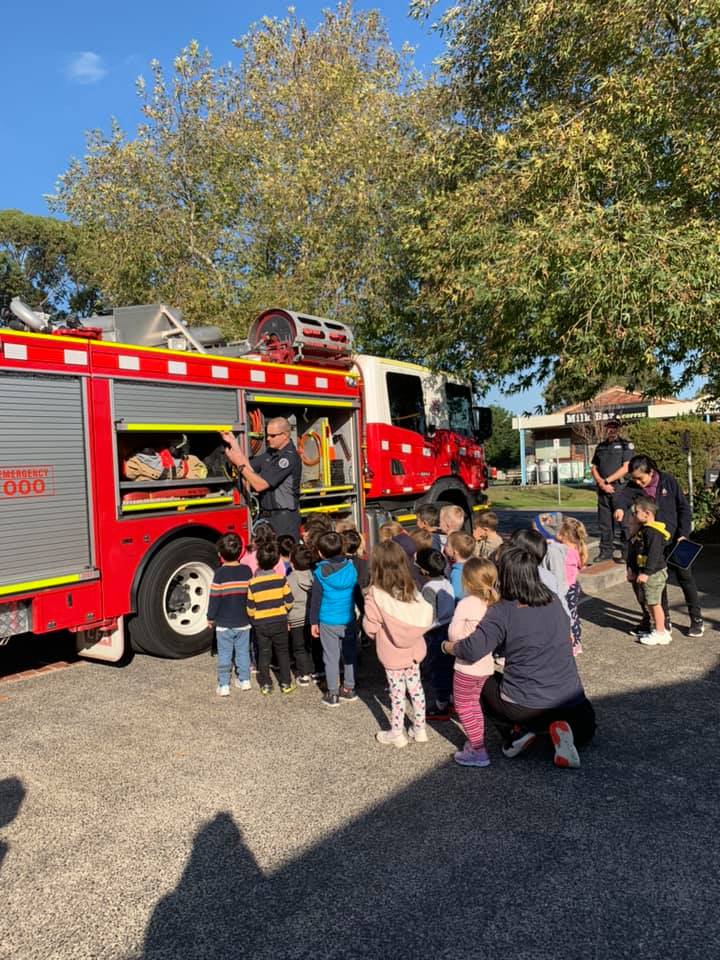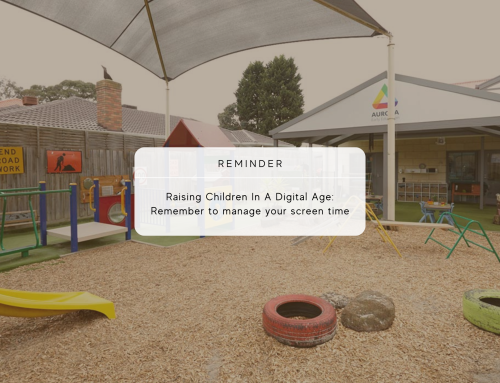For weeks, devastating bushfires have been raging across Australia and the Australian community is coming together to support affected areas. As the fires continue to spread, it’s important to be mindful of how we choose to talk to our children about them. As parents, educators and caregivers we need to help children become more aware of bushfire risks and safety precautions while being careful not to compromise their sense of security. Here are some things you can do.
1. Be honest, but mindful
We often try to shield our children from negative news and events, but it’s important to be honest with them. Tell them about the bushfires which are happening, but be mindful of their reactions. Use age-appropriate language that is easy for your children to understand.
2. Encourage discussions
Encourage your children to ask questions they have. You can also read them stories, or ask them to draw about what you’ve talked about to help them explore their feelings and emotions.
The CFA has a collection of activities which can help raise awareness and encourage discussions about fires and fire safety.
3. Be sensitive to anxiety
Children communicate anxiety in a variety of different ways; they may say they are scared without being specific about what they are scared of, or they may cry without being able to explain why. Anxiety can also manifest in other ways:
- Trouble falling asleep
- Bed-wetting
- Fear of being alone
- Nail-biting
- Loss of appetite
If you notice a change in your child’s behaviour ask them gentle questions about how they are feeling and read stories to open honest discussions.
4. Offer reassurance
Even if your child is not displaying signs of anxiety, it’s important to offer regular reassurance. The best way to offer reassurance is by reminding children that you love and care for them.
Children are also reassured by regular routine, so as far as possible, ensure that you have routines in place for bedtime, mealtimes and morning times.
You can also talk to your children about the different efforts that firefighters, policemen and volunteers are taking to protect everyone.
5. Involve your children in safety preparations
If you live in a place that is prone to get affected by bush fires, it’s likely that your local services have already suggested some fire protection measures you should take. Here are some ways you can involve your children:
- Help them learn their details: encourage your little ones to learn details like their full names, addresses and phone numbers that they can tell fire and police officials in case of emergencies. Talk to your children about how these details will help them find their way back to you, even if you get separated.
- Pack a firebox: this could be a box containing things precious to your child including photos, a few toys, clothes or a comforter. Explain that this box can be taken in case you have to leave your houses; this will help your child feel more secure and comfortable.
- Discuss an action plan: talk about what has to be done if you have to evacuate your house and give your child a job to do, like closing the window in their room. This will help them feel more in control.
Read more about involving children in your fire preparation here.
6. Model positive coping strategies
Children are able to read anxiety in their caregivers, so don’t brush off your own concerns. Explain that you are a little anxious, but that you feel safer because of all the preparation you have done and the safety strategies you have in place.
7. Show your children how they can help
Even if you don’t live in a bushfire prone area, it is likely that your child is aware of the fires and is understanding the impact that it’s having on the community. Talk about how your children can impact affected communities. This will help them feel a stronger community connection and a sense of control:
- Donating toys, clothes, books, food and other provisions that families may have lost in fires.
- Running fundraising activities to raise money to help firefighters or affected families.
- Planting trees to help replace the ones that were lost.
- Creating care kits filled with food and essentials for firefighters and volunteers.
If you feel like your children are being severely impacted by anxiety and worry, or if you yourself are finding it hard to cope, you should turn to professional help. Talk to our educators about resources available or approach our local doctor and community centre. You can also call Parentline Victoria at 13 22 89 and Kids Helpline at 1800 55 1800.
Have a trip to Aurora Early Education Centres:





